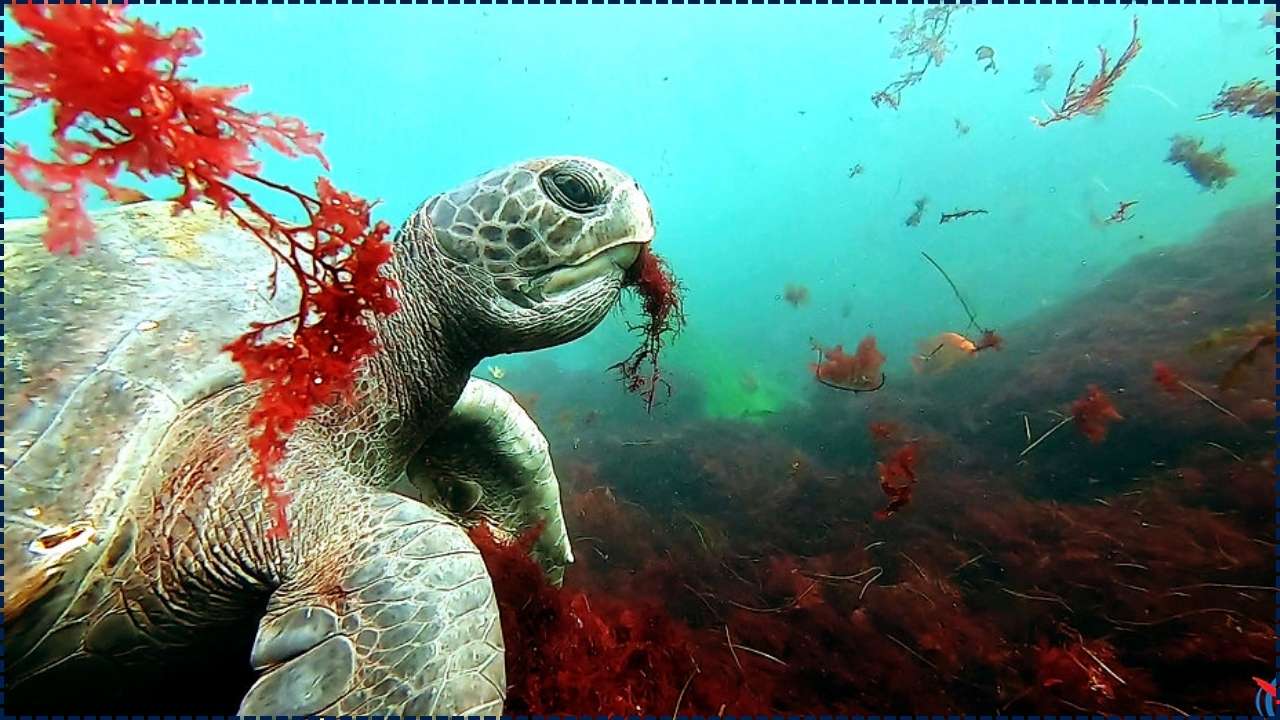Israeli Researchers Find Antibiotic-Resistant Vibrio Bacteria: Israeli researchers have uncovered antibiotic-resistant Vibrio bacteria in the Red Sea and Mediterranean, a discovery that has scientists and public health officials sounding the alarm. This breakthrough raises serious concerns not just for swimmers and seafood lovers, but also for marine ecosystems and global antibiotic resistance trends.

This isn’t just about a rare microbe. These Vibrio strains are known to cause gastrointestinal infections, ear infections, and even deadly wound infections. Even worse, they’re developing resistance to common antibiotics—making them much harder to treat.
Israeli Researchers Find Antibiotic-Resistant Vibrio Bacteria
| Aspect | Details |
|---|---|
| Organism Found | Antibiotic-resistant Vibrio bacteria |
| Location of Discovery | Red Sea (Eilat) and Mediterranean Sea (Tel Aviv) |
| Notable Traits | Resistance to azithromycin; production of cytotoxins |
| Risk to Humans | Gastroenteritis, ear/wound infections, potential bloodstream infections |
| Risk to Marine Life | Threat to coral reefs, marine bacteria, and shellfish |
| Contributing Factor | Climate change, especially warming sea temperatures |
The discovery of antibiotic-resistant Vibrio bacteria in the Mediterranean and Red Seas is more than just a local issue—it’s a red flag for the global community. As climate change continues to warm the oceans, we may see more of these dangerous bacteria popping up in places we never expected.
For now, the best defense is education, caution, and quick action. Whether you’re diving in Eilat, dining on oysters in Spain, or walking barefoot on a beach in Florida, it pays to know what lurks beneath the surface.
What Is Vibrio, and Why Should You Care?
Vibrio is a genus of bacteria that naturally lives in warm, brackish, and saltwater. You might have heard about it in the context of raw oysters—a common way people get sick from it. But not all Vibrio are created equal.
While some cause mild food poisoning, others, like Vibrio vulnificus, can lead to severe infections and even amputations or death. Now add antibiotic resistance into the mix, and we’ve got a much bigger problem.
“This discovery isn’t just a marine biology issue. It’s a public health warning,” says Dr. Adi Lotan, one of the lead researchers.
What the Israeli Study Found
Researchers at Tel Aviv University, working with scientists from Israel Oceanographic and Limnological Research Institute, analyzed 23 Vibrio strains collected from:
- Coastal Tel Aviv (Mediterranean Sea)
- Eilat (Red Sea)
Here’s what they uncovered:
- Genes resistant to azithromycin, a frontline antibiotic used in both humans and animals
- Several strains carried cytotoxins, proteins that kill immune cells and disrupt microbial ecosystems
- High survivability in warm and nutrient-rich waters, conditions increasingly common due to climate change
These strains didn’t just resist drugs—they showed aggressive behavior towards both human cells and native marine organisms, including coral and shellfish.
Climate Change and Bacteria—What’s the Link?
Climate change isn’t just melting ice caps—it’s heating up the oceans. And that’s bad news for water safety.
Warming waters = bacteria party:
- Higher temps boost Vibrio growth and spread
- Longer warm seasons = more risk exposure
- More storms and flooding = increased runoff and pollution, helping resistant bacteria thrive
According to NOAA, sea surface temperatures in some areas of the Eastern Mediterranean are now 3–5 degrees Fahrenheit higher than average, creating ideal Vibrio breeding grounds.
What This Means for Humans
You don’t have to be a marine biologist to be concerned. Vibrio bacteria can infect humans through:
1. Eating Undercooked or Raw Seafood
Especially oysters, clams, and other shellfish from warm coastal waters.
2. Swimming With Open Cuts or Wounds
The bacteria enter through the skin and can cause necrotizing fasciitis—a rapidly spreading infection.
3. Contact With Contaminated Water
Even minor exposure through the eyes or ears can cause infections, especially in kids or immunocompromised people.
Israeli Researchers Find Antibiotic-Resistant Vibrio Bacteria Protect Yourself and Your Family
Whether you’re headed to the beach or ordering oysters at a seafood shack, here’s how to stay safe:
1. Be Cautious With Seafood
- Cook shellfish thoroughly
- Avoid raw or undercooked seafood, especially during summer months
- Don’t eat seafood from questionable sources
2. Avoid Seawater If You Have Wounds
- Cover cuts with waterproof bandages
- Stay out of warm coastal waters if you have recent tattoos, piercings, or broken skin
3. Watch for Symptoms
- Stomach cramps, diarrhea, vomiting (if ingested)
- Redness, swelling, pain, or discharge from wounds (if exposed through skin)
- Fever, chills, or disorientation (seek emergency care)
4. Seek Medical Help Quickly
Vibrio infections can escalate fast. Early treatment is crucial.
“The longer you wait, the fewer antibiotics work,” warns Dr. Lotan.
How This Impacts the Ocean Ecosystem
It’s not just humans at risk. Vibrio bacteria are also harmful to marine life:
- Corals: Suffer from bleaching and bacterial diseases
- Shellfish: Vulnerable to mass die-offs
- Fish populations: Impacted by imbalanced microbiomes
The spread of antibiotic-resistant strains could make marine disease outbreaks harder to control, threatening biodiversity and fisheries.
FAQs On Israeli Researchers Find Antibiotic-Resistant Vibrio Bacteria
Q: Is it safe to swim in the Mediterranean or Red Sea?
A: Generally yes, but avoid swimming with open cuts or wounds—especially in warmer months (May–October).
Q: Can I still eat seafood from these regions?
A: Yes, if it’s cooked properly. Avoid raw shellfish from warm coastal areas unless tested and certified safe.
Q: How do I know if I’ve been infected?
A: Watch for symptoms like diarrhea, vomiting, or wound redness/swelling after exposure. If in doubt, see a doctor.
Q: What makes these strains antibiotic-resistant?
A: These bacteria carry genes that block or expel antibiotics, particularly macrolides like azithromycin.
Q: What can be done to stop the spread?
A: Better sewage treatment, less overuse of antibiotics, climate action, and marine monitoring can help.
What’s Next for Researchers?
Israeli researchers are now working on:
- Expanding water testing zones in the Red Sea and Mediterranean
- Creating a database of antibiotic-resistant marine bacteria
- Partnering with global agencies for better water safety protocols
They are also calling for increased surveillance programs similar to those used in agriculture and hospitals for tracking superbugs.
“We need ocean-level awareness, not just hospital-level precautions,” said Dr. Lotan.








